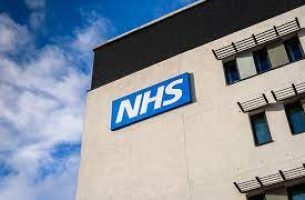Gastrointestinal (GI) medical history taking We will now describe gastrointestinal medical history taking. As with all medical history taking .. Listen to your patient, he is telling you the diagnosis”. Dr William Osler (1849-1919) .. and 90% of the diagnosis is in the medical history. Full stop. Careful examination is important after a careful history, especially […]
Read MoreRespiratory medical history taking We will now describe respiratory medical history taking. As with all medical history taking .. Listen to your patient, he is telling you the diagnosis”. Dr William Osler (1849-1919) .. and 90% of the diagnosis is in the medical history. Full stop. Lung anatomy is different on the right and left. Most […]
Read MoreCardiac medical history taking We will now describe cardiac medical history taking. As with all medical history taking .. Listen to your patient, he is telling you the diagnosis”. Dr William Osler (1849-1919) .. and 90% of the diagnosis is in the medical history. Full stop. Murmurs are important but not as important as a careful […]
Read MoreWhat does the liver do? (8 functions) 1. Size. The liver is the largest internal organ in the human body, weighing around 1.5 kg in adults. 2. Anatomy. The liver is located on the right side of the body, just below the diaphragm, and is protected by the rib cage. The liver is reddish-brown and shaped like […]
Read MoreWhat does the brain do? (10 functions) The brain is an incredibly complex organ responsible for a wide range of functions in the human body. Here are the 10 key functions of the brain. 1. Processing information The brain receives, interprets, and processes information from our senses – such as sight, hearing, taste, smell, and […]
Read MoreWhat does the blood do? (8 functions) In this article we will describe what does the blood do. Let’s start with the basics. What is blood? Blood is a vital fluid that circulates throughout the human body, delivering essential substances to various tissues and organs while removing waste products. Here are the 8 key functions […]
Read MoreWhat does the lymphatic system do? (5 functions) The lymphatic (or lymph, for short) system is a network of vessels, tissues, and organs that work together to maintain fluid balance, remove waste products and toxins, and support the immune system. These are the 5 functions of the lymphatic system. 1. Fluid balance – the lymphatic system […]
Read MoreWhat does the spleen do? (3 functions) In this article we will describe what does the spleen do. Most people have heard of the spleen, but not all know what it does. In fact, the spleen is a highly specialised and important organ that plays a critical role in the body’s immune system, and removal […]
Read MoreWhat does the gastrointestinal tract do? In this article, we will describe what does the gastrointestinal tract do. 1. The gastrointestinal tract (GI tract) – is a long tube-like organ that starts at the mouth and ends at the anus. 2. The GI tract includes several organs – such as the mouth, oesophagus, stomach, pancreas, gall bladder, […]
Read MoreWhat do the lungs do? (7 facts) 1. Functions – the lungs are the organs responsible for breathing, helping to transfer oxygen from the air we inhale into the bloodstream and removing carbon dioxide from the body. The lung is also a metabolic organ. It is involved in the synthesis, and degradation of a variety of substances, including […]
Read More

